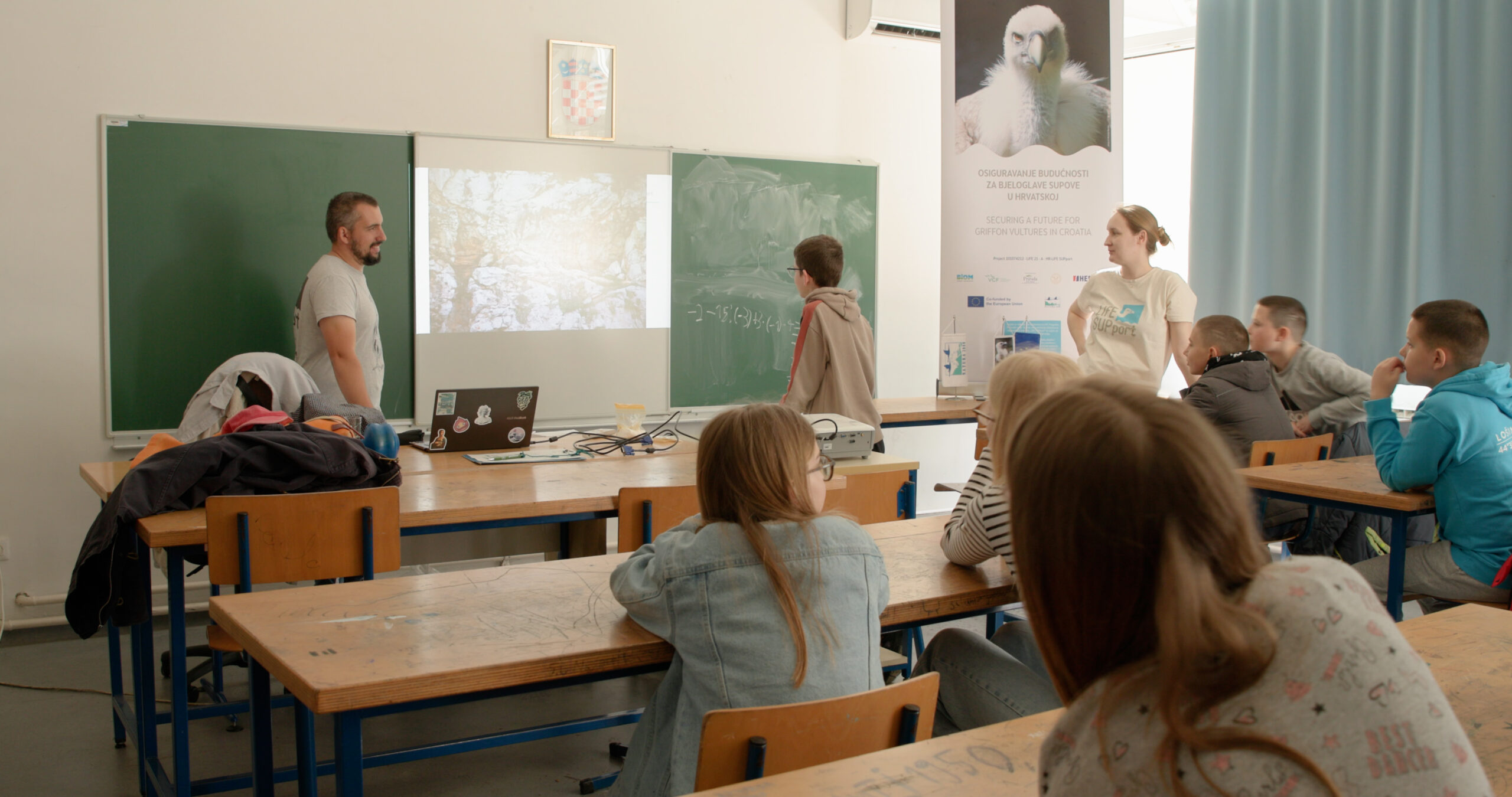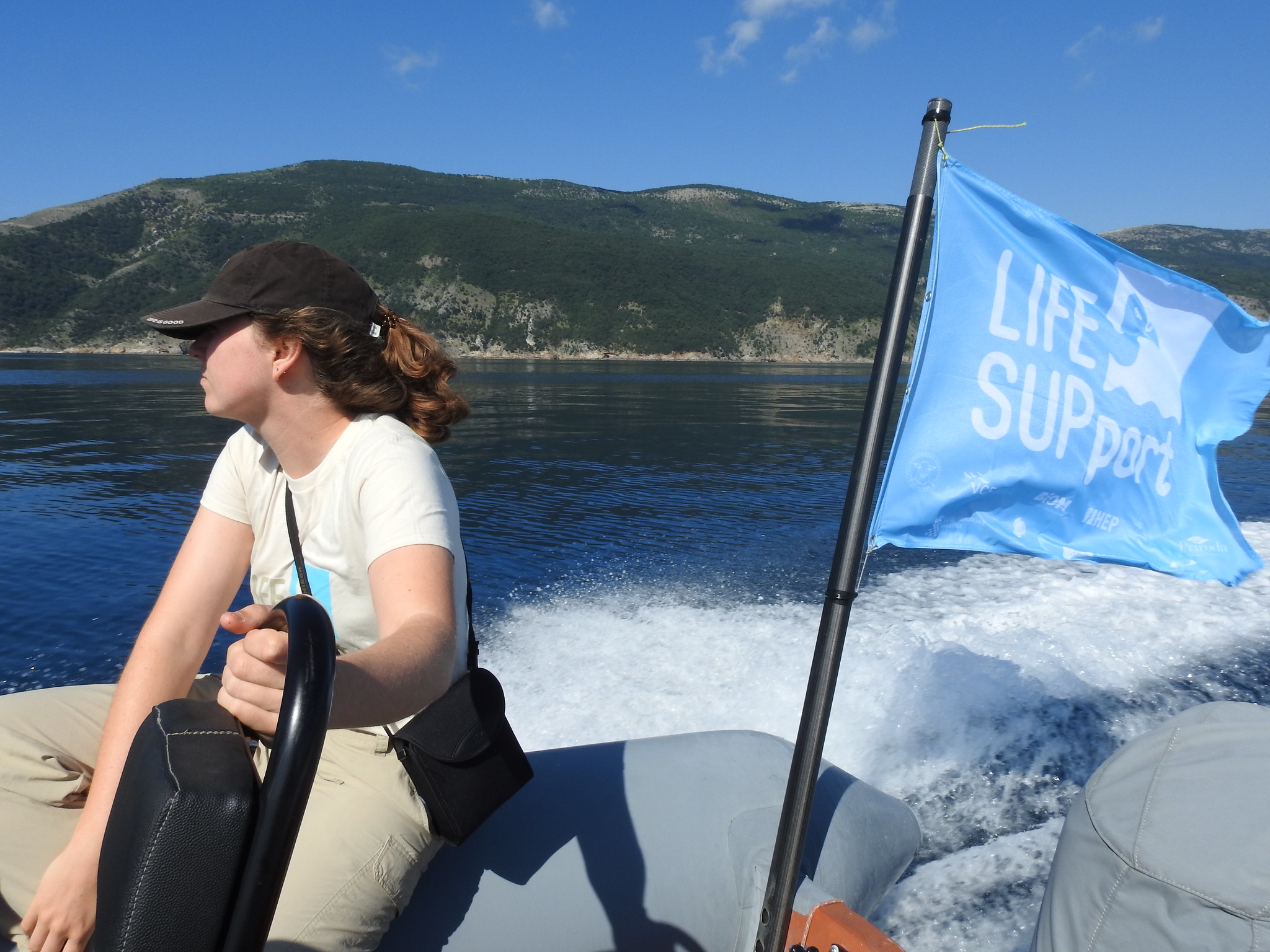Are Croatian parties planning on fighting for a green environment in the EU Parliament or will they frame subjects of a protected nature and a healthy environment as questions of profit?

Five years since the beginning of the European Green Deal, the effort to start creating a resilient and fair society in harmony with nature, we can come to the conclusion that this project is still unfinished. What we want is a concrete ecological transformation that Europe needs in order to survive. The coming elections for the European Parliament will decide the fate of the European Green Deal, which is why we wanted to find out whether Croatian political parties intend to put their representatives to work to fulfil their obligations within the scope of the European Green Deal. These obligations include policies on climate, energy, biodiversity, agriculture, circular economy, transport, finance, and pollution. For this purpose, we sent a survey with an array of concrete questions to all the political parties that will participate in the elections of 9 June.
We received replies to the questions relating to the European Green Deal from the Social Democratic Party of Croatia (SDP), the We Can! party, the Homeland Movement party, the Sustainable Development of Croatia (ORaH) party, and Nina Skočak’s GenZ Independent List, while other parties sent no response.
When asked whether they intend to honour the European Green Deal in the next five years, making its implementation a priority, as well as supporting additional and stronger EU legislature on climate and the environment in order to fulfil the obligations within the scope of the European Green Deal, the parties that participated in the survey answered in the affirmative. The We Can! party confirmed that this is the focal point of its programme, and ORaH conveyed that it is fully committed. What is interesting is that the Homeland Movement answered all the questions, including this one, in the affirmative. SDP also answered affirmatively, but with a request for a “dialogue regarding the deadlines for the realisation of certain European Green Deal policy objectives due to the crisis caused by the Coronavirus and the consequent slow economic growth”. The continuation of the implementation of the Deal, as well as its perfecting, is an absolute priority to Nina Skočak’s Independent List, according to its answer. “As we highlighted in our programme, a more ambitious Nature Protection Act is what we want, with a minimum of 30% of protected areas before 2030”, Nina Skočak’s Independent List replied.
Saving species from extinction and preserving the last natural habitats on our continent stand amongst the greatest successes of the EU. The EU Nature Directives, the Natura 2000 pan-European network of protected areas, and the EU LIFE programme led to the return of cranes, flamingos, eagles, wolves, and bison throughout Europe. However, the protection of nature is still an unfinished work, particularly due to poor enforcement of laws and the continuous polluting of the environment given that a strict protection really doesn’t exist in practice.
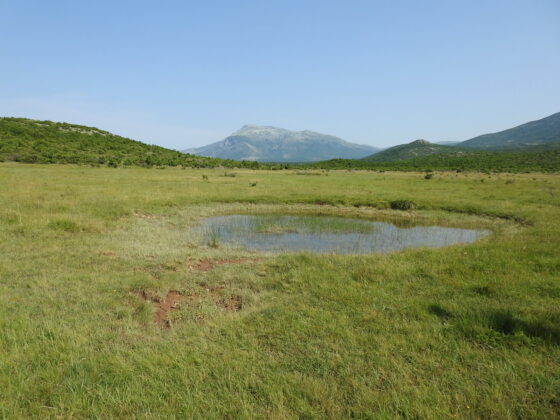
The protection of what remains is still a priority, but it is no longer enough. Nevertheless, Europe can still get back the nature that was lost if great efforts are made to restore it. This is the goal of the new EU Nature Restoration Law, and the objective of restoring nature is also included in the new Kunming-Montreal Global Biodiversity Framework.
In order to let nature grow, whether in previously established ecosystems or those newly restored, we must make sure that it is not harmed by pollution. The EU’s “zero-pollution ambition” creates a vision of the environment that is free of toxins, which could improve not only the wildlife, but also the health of people throughout the EU. It is imperative to take measures in order to make that vision into reality – by taking steps to limit the use and selling of harmful chemicals, and to ensure the enforcement of already existing limitations.
All the political parties that responded to our survey have committed to a correct implementation of the Birds and Habitats directives, as well as the future EU Nature Restoration Law, and ORaH even added that this is one of the key points of its programme for these EU elections.
Does your party commit to supporting the improvement of the EU biodiversity strategy and protecting 30% and strictly protecting 10% of land and sea, thereby contributing to an ecologically coherent and well-connected network of protected areas? All five parties responded affirmatively to this question, while We Can! added that this is also a part of its programme on a national level. Nina Skočak’s Independent List also claims that achieving the goal of 30% of protected areas is part of its programme.
Moreover, all the parties commit to protecting natural areas and achieving objectives set within the scope of the EU biodiversity strategy and the Kunming-Montreal Global Biodiversity Framework, and making their promises legally binding objectives for all member states of the EU. Each party affirmed that it would support a better implementation of the EU Water Framework and Marine Strategy Framework Directives.
When it comes to the protection of wolves, all the parties are committed to their protection and reject any decisions on the change of the protection status of wolves without clear and solid scientific data, in accordance with the provisions of relevant legislation, as confirmed by the Fitness check of the Species and Habitats Directives. SDP added a clarification to its reply: “Yes, but a fair and timely compensation must be paid to farmers, entrepreneurs, and citizens affected by the damage caused by wolves.” As for Nina Skočak, her party said something similar: “Wolves who are at the top of the food chain are extremely important for biodiversity. We will also advocate for providing support to farmers for the purposes of protecting their livestock in order to avoid a conflict of interest between the protection of livestock farming and the protection of biodiversity.”
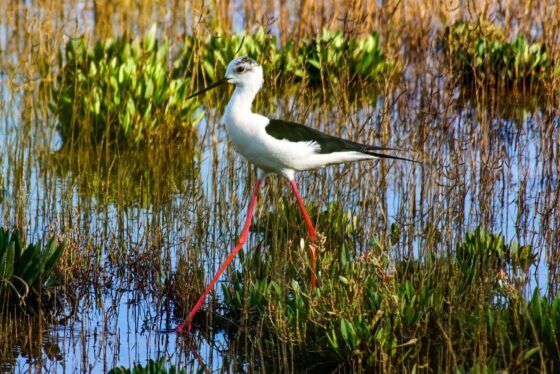
All five parties support the enforcement of the REACH Regulation on limiting the use of lead in or around humid habitats, and they support the limitation according to the EU REACH aiming to reduce the use of lead in weapons for hunting, outdoor sports shooting, and fishing.
The survival of our civilisation, as well as the survival of most of the other living species, is incompatible with the continuous use of fossil fuel. The fossil fuel lobby has been intensely working on delaying the energy transition and prolonging our dependence on fossil fuel through a strategy of disinformation and corruption, and this has already cost some lives. Are the political parties committed to supporting an environmentally friendly transformation of our energy systems into a net-zero greenhouse gas economy, with up to a 100% use of renewable energy sources before 2040, including the reduction of energy demands in all sectors, increased efficiency, and transition from fossil fuel to renewable energy, along with ensuring the protection and restoration of biodiversity? The Homeland Movement replied affirmatively, and ORaH said: “Completely.” We Can! responded that this is an integral part of their programme, and Nina Skočak’s Independent List claim that this is an “absolute priority”, while SDP replied in an evasive fashion: “Partly.”
All five parties support a holistic approach to urban planning and solid environmental measures, and they commit to supporting balancing and conflict resolution between all present and future usage, as well as make sure that renewable sources of energy, networks, storage, and all infrastructure are developed in harmony with nature.
A gradual phasing-out of environmentally harmful subsidies by 2030, among those being the subsidy for the combustion of biomass, and achieving a totally circular economy is supported by all the parties, but with a caveat from SDP: “Yes, but with a significant extension of the deadline.”
The participating parties support active policies for maximising the synergy between climate and nature and the implementation of solutions based on nature to solve climate issues, disaster risks, water safety issues, loss of biodiversity, and human health issues.
Nina Skočak’s Independent List responded that it promotes the implementation of solutions based on nature (planting trees), “but also technological solutions (carbon capture) in addition to those.”
All respondents support restoring nature in cities and promoting urban biodiversity, including urban planning in accordance with biodiversity. The We Can! party added that this is what they have already been doing in the cities that they govern.
Nina Skočak’s List states in its reply: “During the campaign we’ve clearly conveyed the need for a green urban planning. We see this as a strategy of mitigating the consequences of climate change in the cities, as well as a way to return nature into cities.”
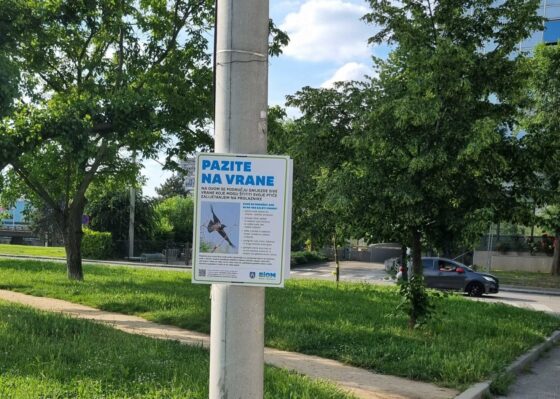
With regards to the revision of the EU subsidy system for agriculture and the fishing industry, the elimination of subsidies that lead to intensification and specialisation, and the elimination of all non-targeted and environmentally harmful subsidies, We Can! considers it necessary to make a revision of the subsidy system so that family farms and sustainable agriculture and fishing can get the subsidies. They added that they want to promote cooperation in these sectors. On the other hand, SDP affirms that they are in favour of the revision, “but over a longer period of time which is needed to invest in research, new technologies, innovations and education of farmers.” The Homeland Movement supports the revision, and ORaH is completely in support of it.
Nina Skočak’s Independent List responded that it wants a better redistribution of incentives between smaller and larger producers: “We will fight for the strengthening of small-scale family farms, their cooperation and energy independence.”
All five parties support a “payments for ecosystem services” system in a future agriculture policy, and they want to reward landowners or land managers for providing public goods and services which are not paid for directly on the market, such as preserving of biodiversity, flood protection, carbon conservation, and water retention.
“The current system from the first pillar of the common agricultural policy favours larger producers by setting the amount for the incentives based on the size of the cultivated land, which is harmful. This encourages the loss of biodiversity, but it is also the cause of growing inequalities between member states of the EU. We will support the so-called high nature value farmland, a better way of demarcating them from invasive agricultural practices, and a better way of measuring, which is the basis of defining such lands”, Nina Skočak’s Independent List added.
A strong sustainable food systems policy is also supported by all five parties that participated in our survey. Such a policy would allow for a redirection of production and consumption of food in accordance with planetary restrictions. The We Can! party added that it is implementing “a pilot project of green public procurement to encourage locally produced food in public institutions.”
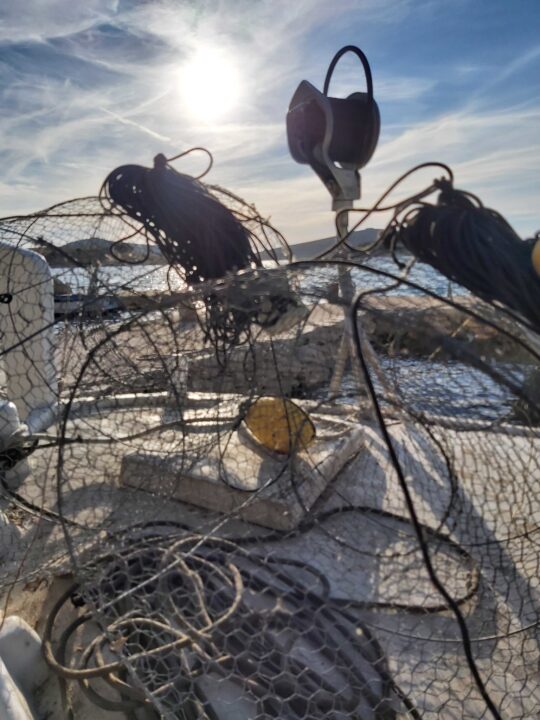
SDP, We Can!, ORaH, Homeland Movement, and Nina Skočak’s Independent List have committed to supporting the transition to a transparent small-impact fishing based on the ecosystem, and a complete implementation of environmental EU legislature in marine environment, such as the Birds and Habitats directives, as well as the EU Marine Strategy Framework Directive.
They also support adapting the EU marine policies in order to reconcile them with one another and with the EU objectives and international climate objectives. Furthermore, they would reconcile them with biodiversity objectives in order to encourage a sustainable blue economy. All five parties support strong laws to quickly reduce pesticide, nutrient, and plastic pollution in agriculture and marine environment.
The respondents support an effective set of indicators for measuring the condition of forests in the EU in order to get a better understanding of what is needed to be done to protect those ecosystems and the services they offer in a better way, especially with regards to carbon conservation.
The parties support phasing-out of bioenergy subsidies in favour of other renewable sources of energy which truly reduce greenhouse gas emissions, are less harmful to biodiversity, and do not use agricultural land to produce energy. Nina Skočak’s Independent List claims that it supports this “in phases”.
All five respondents support establishing a nature restoration fund that would help restore nature on a grand scale and enable a successful implementation of the new Nature Restoration Law. Homeland Movement added that this can be found in their programme.
When asked whether the political party supports EU and national investment in nature of at least 50 billion of euros annually, all five parties responded affirmatively. We Can! stated the following: “We support greater investment in nature and a reform of the EU budget which would make this possible.”
“We have no opinion on precise sums needed to achieve certain goals. If scientific studies show that this is enough, then yes”, Nina Skočak’s Independent List replied.
Does your party commit to supporting rigorous conditionality of the EU funds with aims to support a sustainable transition, to ensure that the EU financing is used for a transformation into a sustainable and fair Europe? SDP replied with “partly”, while other parties answered affirmatively. “We are advocating the use of EU funds in accordance with EU’s environmental and social objectives”, Nina Skočak’s Independent List replied.
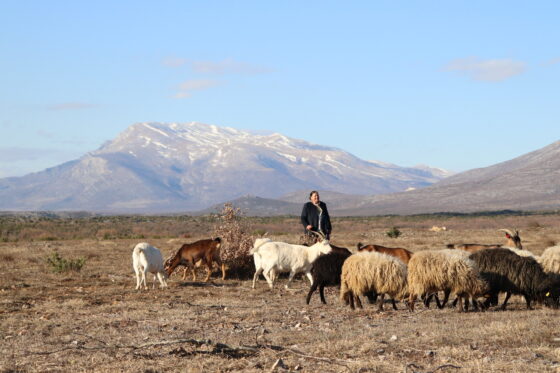
All the parties have a positive attitude towards the question of a fair transition. They commit to supporting investments into a fair transition in key sectors, such as agriculture (e.g. incentives to farmers in the process of phasing out of industrial livestock production), forestry, and fishing, to make these sectors truly sustainable while helping local communities, businesses, and livelihoods. Furthermore, they commit to a just and fair transition by way of obligatory large investments into EU energy saving, recovery, and retraining/re-employment programmes.
All five parties support strict rules against corruption, conflict of interest, a more effective EU regulation against the politics which allow senior civil servants to transfer into the private sector and vice-versa, a full transparency into the EU law-making and negotiation processes, as well as the governance mechanisms which would allow making decisions based on the best available scientific practices.
It is worth noting that all five parties commit to enabling and strengthening the space for civil society, which includes financial support for citizens and organisations.
In conclusion, all responding parties commit to supporting adding the right to a healthy environment to the Charter of Fundamental Rights of the European Union, as acknowledged by the UNHCR resolution of 8 October 2021, so that every citizen would have access to a safe, clean, healthy, and sustainable environment in the EU. “The right to a healthy environment is also established by the numerous judgments made by the European Court of Human Rights pursuant to Article 8 of the European Convention for the Protection of Human Rights. We will advocate that the practice of ECtHR and the Council of Europe becomes a part of the EU acquis, and thereby the acquis of all member states”, Nina Skočak’s Independent List added.
Note: The overview of the responses of political parties was complemented on 31 May 2024 at 20:55 by the subsequently submitted responses from Nina SKočak’s Independent List.
Translated by: Lucia Grzunov




